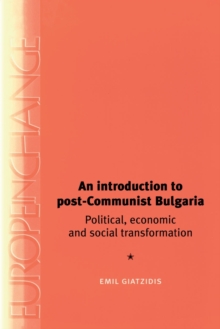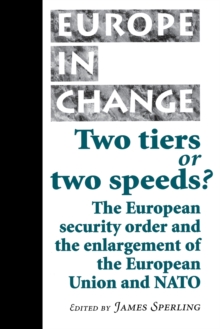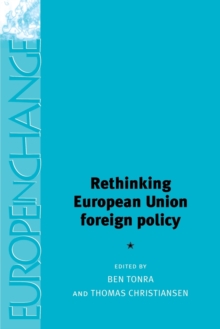
The Europeanisation of Conflict Resolutions : Regional integration and conflicts from the 1950s to the 21st century PDF
by Boyka Stefanova
Part of the Europe in Change series
Description
This book is about the EU's role in conflict resolution and reconciliation in Europe.
Ever since it was implemented as a political project of the post-World War II reality in Western Europe, European integration has been credited with performing conflict resolution functions.
It allegedly transformed the long-standing adversarial relationship between France and Germany into a strategic partnership.
Conflict in Western Europe became obsolete. The end of the Cold War further reinforced its role as a regional peace project. While these evolutionary dynamics are uncontested, the deeper meaning of the process, its transformative power, is still to be elucidated.
How does European integration restore peace when its equilibrium is broken and conflict or the legacies of enmity persist?
This book sets out to do exactly that. It explores the peace and conflict-resolution role of European integration by testing its somewhat vague, albeit well-established, macro-political rationale of a peace project in the practical settings of conflicts.
The analytical lens of that of Europeanization. The central argument of the book is that the evolution of the policy mix, resources, framing influences and political opportunities through which European integration affects conflicts and processes of conflict resolution demonstrates a historical trend through which the EU has become an indispensable factor of conflict resolution .
It begins with the pooling together of policy-making at the European level for the management of particular sectors (early integration in the European Coal and Steel Community) through the functioning of core EU policies (Northern Ireland) to the challenges of enlargement (Cyprus) and the European perspective for the Western Balkans (Kosovo).
The book will be of value to academics and non-expert observers alike with an interest in European integration and peace studies.
Information
-
Download - Immediately Available
- Format:PDF
- Pages:256 pages
- Publisher:Manchester University Press
- Publication Date:19/07/2013
- Category:
- ISBN:9781847794093
Other Formats
- Paperback / softback from £25.89
- Hardback from £61.95
Information
-
Download - Immediately Available
- Format:PDF
- Pages:256 pages
- Publisher:Manchester University Press
- Publication Date:19/07/2013
- Category:
- ISBN:9781847794093










